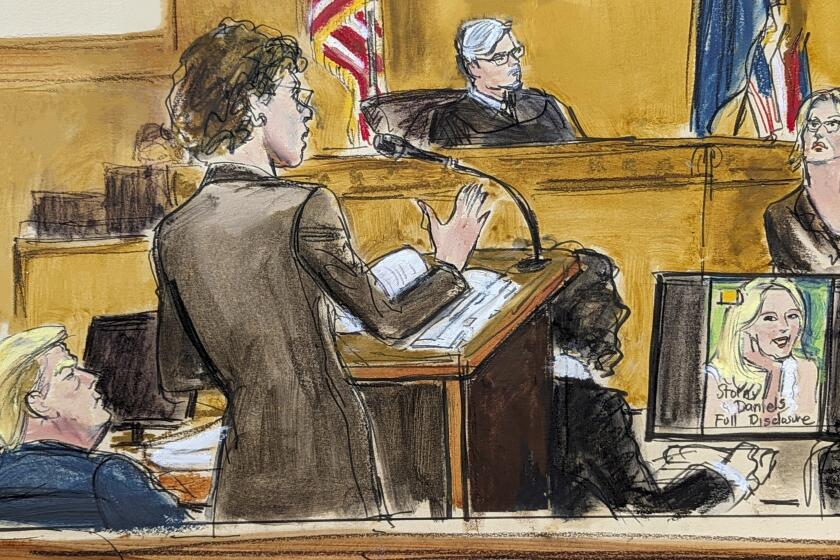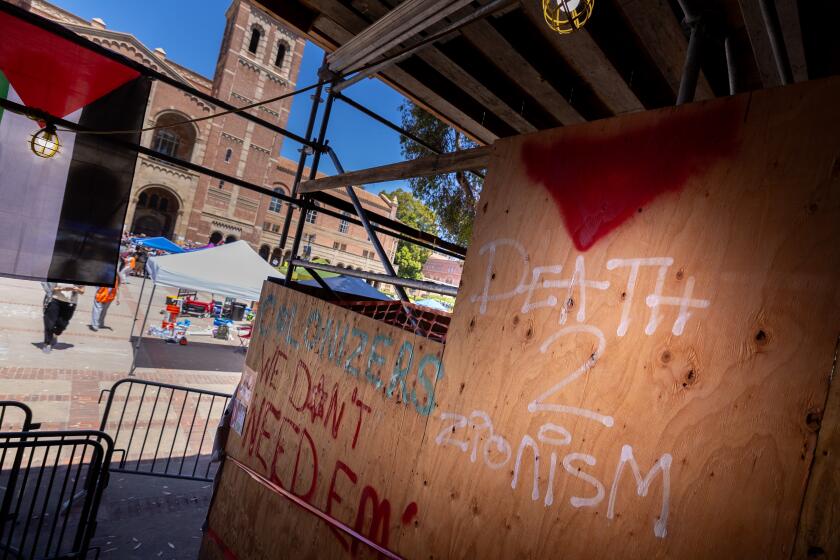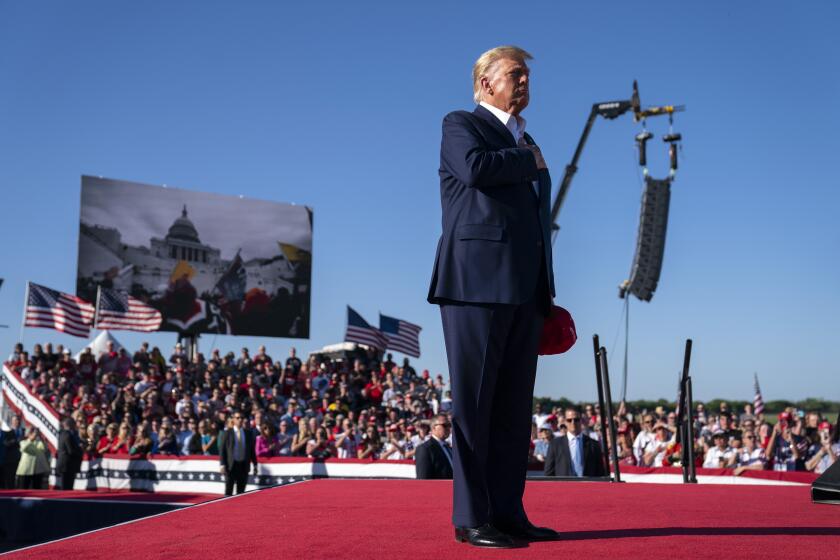E. German Crisis Ends as Coalition Resolves Dispute : Unification: Prime Minister De Maiziere drops his opposition to a joint all-German election next December.
East Germany’s four-month-old government survived its first real crisis Friday when the coalition’s two major parties buried their differences on a key point in the unification process.
Following a meeting Friday morning, the East German Social Democrats withdrew their threat to leave the four-party coalition after Prime Minister Lothar De Maiziere dropped his opposition to a joint all-German election next December.
Such a withdrawal would have left East Germany with a weak minority government during the final months before unification.
“The ideas proposed by the Social Democrats have been met,” the party’s parliamentary floor leader, Richard Schroeder, announced after a 1 1/2-hour meeting of Socialist members of the Parliament. “(There is agreement on) a unified election law and a unified election area and to have the same conditions in both countries.”
De Maiziere also favored an early December date for the national election; however, he argued in favor of parallel but separate elections in East and West Germany order to avoid specific aspects of West German election law considered politically disadvantageous to his Christian Democrats.
West German Chancellor Helmut Kohl also had wanted separate elections.
The small Liberal Party, which left the coalition in connection with the same dispute, was said to be considering now rejoining the government.
Under terms of the agreement, it now seems likely that German unification will formally take place on the evening of Dec. 1, the day before the national election scheduled for Dec. 2.
On that night, East Germany will accede to West Germany under Article 23 of the West German constitution, which offers “other parts” of Germany the opportunity to join it if they wish.
De Maiziere’s Christian Democrats hoped to avoid the West German electoral requirement that a party must win a minimum of 5% of the popular vote to enter Parliament. There is no such limit in East Germany.
The law, used successfully in West Germany for years to prevent tiny, extremist splinter parties from winning a parliamentary voice, would in this election most likely block the small East German parties that launched last November’s revolution.
The Communists also would likely fall short of 5% in an all-German election.
Although Kohl and De Maiziere both said their stance was based on fairness, political observers noted that all the smaller parties represent the left and would erode Social Democratic parliamentary strength.
For much the same reason, the Social Democrats argued strenuously in favor of conducting the poll under West German law.
However, under a compromise, the parties left open the possibility of altering the 5% limit for this election only.
The Christian Democrats now talk of allowing parties into Parliament if they win 5% in any of Germany’s 16 states--a development that would enble at least some of the smaller left-wing parties to win seats.
The Social Democrats insist on the nationwide 5% level.
More to Read
Start your day right
Sign up for Essential California for news, features and recommendations from the L.A. Times and beyond in your inbox six days a week.
You may occasionally receive promotional content from the Los Angeles Times.






